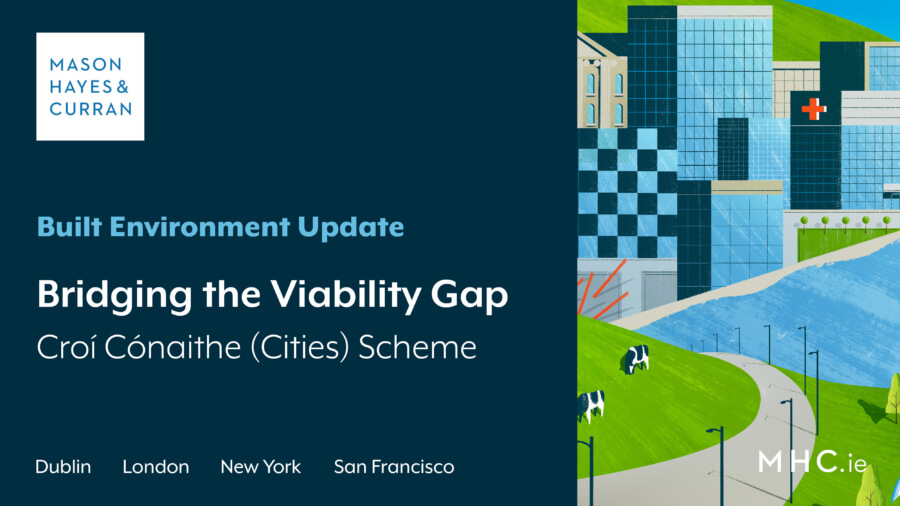
Viability is one of the key challenges to the Irish Government’s ‘Housing for All’ policy. The high costs of developing apartments in particular means that developers struggle to deliver this key component of housing supply at costs that purchasers can afford. This situation is exacerbated by the high levels of price inflation currently affecting the construction industry. The Government’s recently published Croí Cónaithe (Cities) Scheme aims to assist in bridging the viability gap for apartment building in Ireland's five largest cities.
Density
Greater density urban living is a key feature of the Housing for All policy. In addition to providing additional housing supply, greater density assists in the efficient development of public transport and amenities as well as providing for more sustainable forms of development.
Cost
The current cost of building apartments means that, in many instances, apartments cannot be privately developed at a cost per unit that is lower than the market sale price. The problem is more acute in cities outside Dublin where unit sale prices are lower. The Government estimates that there are currently 70,000 uncommenced planning permissions in the five largest cities – Dublin, Cork, Limerick, Galway and Waterford.
State funding
In order to assist in bridging this viability gap, the State is committing funds of up to €500 million to the scheme, which will be administered by the Housing Agency. There will also be an inner limit of €120,000 per apartment. The State’s contribution is payable upon the disposal of the apartment to an eligible purchaser.
To be eligible, apartment blocks must be:
- Located within one of the following cities: Dublin, Cork, Limerick, Galway or Waterford
- Four storeys or higher with a net density of 35 dwellings or more per hectare
- Close to public transport
- For sale to owner-occupier households only
- Able to demonstrate a viability gap, where the cost of building the apartments is higher than the market sale price, and
- Have full grant of planning approval but must not have commenced construction at the time of submission
The Housing Agency will then rank eligible candidate developments based on a number of criteria, including density, date of delivery of the apartments, the quality of the development, the delivery cost per apartment and proximity to core services and amenities.
The Housing Agency will be accepting applications on eTenders up to 21 June 2022. The apartments that avail of the scheme are expected to be delivered in 2024 and 2025.
Conclusion
Achieving viable apartment building is critical to increasing new housing supply. While Croí Cónaithe is relatively modest in scale, it targets key urban residential markets where supply is still inadequate. By focusing on issues of viability, and developments with existing planning permissions, the Government’s policy has the potential to significantly increase apartment output in the next three years.
Many developers and potential buyers of apartments may be disappointed that the scheme is currently confined to five city areas. However, if the scheme delivers on reducing the cost of apartment ownership for individual buyers and pushing up housing density in urban areas, they may be a compelling argument for expanding the geographical scope of the scheme in the future.
For more information, please contact a member of our Construction, Infrastructure & Utilities or Real Estate teams.
The content of this article is provided for information purposes only and does not constitute legal or other advice.





